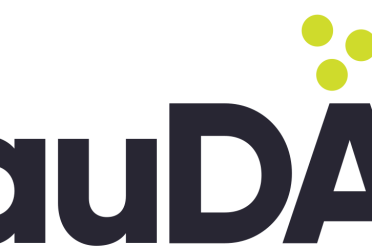The Covid-19 pandemic has had an enormous impact on how businesses manage and control their ICT networks.
Historically, most businesses operated with an on-premises network, and would support remote workers by providing VPN access, or perhaps via a remote desktop server solution. Then, in order to facilitate the demands of remote working, many hastily under pressure from COVID-19 lockdowns, put in place a cloud-based network – or increased their existing network capacity fairly dramatically.
As a result, countless Australian businesses are now in a situation where their network has been scaled or configured so quickly it’s become complex and hard to manage, and isn’t giving them the control, visibility or insight they need.
This can have a worrying and quite serious effect in terms of customer service, compliance, security and your overall reputation – especially with remote working set to stay. According to a recent study by Sydney University, 75% of workers think employers will support future work from home plans into the future.
In order to facilitate employees’ expectations regarding remote working, and to ‘future-proof’ your network, it’s important to take a step back and analyse exactly how your network is performing, or how it could be improved.
Here are four simple signs your network may be in need of a review:
#1 – Compliance issues
As the foundation of your business’ IT, it’s imperative that your ICT network adheres to all regulations and compliance requirements – whether these are set by your own business, your industry, or are regulated by the Australian Privacy Act or under mandate from Europe’s General Data Protection Regulation (GDPR).
If your business has very rapidly scaled up your network infrastructure, and/or is providing access to people and devices working remotely, it’s vital you ensure that you’re doing so in a compliant way. Not doing so could mean exposing your business to very costly security breaches or fines, which would have a significant impact on your income as well as your reputation.
For many IT teams and/or business owners, however, understanding compliance requirements can be difficult and potentially overwhelming. A recent study revealed that a staggering 85% of businesses believe their cloud networks are not fully compliant.
This is where engaging an expert to review your network – and identify any potential compliance issues as soon as possible – can be invaluable.
#2 – Security gaps
When it comes to providing remote network access, security is perhaps the greatest risk. Whether employees are connecting to a cloud network, or you’re supporting an on-premise network with multiple sites and multiple access methods, it’s important to ensure that there are no gaps that can be exploited by cyber-criminals, or inadvertently exposed by employees.
A recent study found that, when working from home, some employees are prone to share their passwords with others as a way to accomplish certain tasks more rapidly. In fact, 26% of Australian respondents said they have shared passwords with colleagues, partners, flatmates or friends.
To prevent security breaches, it’s important to have automated and rigorous security measures in place, so that IT aren’t burdened with manually checking and monitoring every network action. Having firm access and authentication rules in place can significantly minimise the likelihood of unauthorised access.
#3 – Lack of visibility
For many businesses, a lack of network visibility is becoming a major problem – especially when the network has grown or changed in a short space of time. In a recent survey, for instance, 80% of IT teams said they had less visibility of the cloud portion of their network than of other parties.
To maintain control, and make informed decisions, it’s important that both the IT team – and management – have the insights and visibility they need. This can include gathering information on things like:
– Who is accessing the network, and from where?
– What devices are they accessing to access the network?
– For how long are people staying connected?
– To what extent is the network being accessed after hours versus during the workday?
– What inefficiencies exist and how can they be resolved?
– Could configuring our network differently – for instance, by adding a cloud network element – make a difference to how people connect?
#4 – Difficulties managing the network
As networks have scaled in complexity and composition, in many cases they have also become increasingly difficult to manage. This is particularly the case when people within the business install or alter network components without the IT team’s review. In fact, a recent survey suggests that nearly 40% of businesses allow changes to their cloud network without the networking teams’ approval.
If your network is hard to manage – or if there are gaps in your level of control – it can pay to seek an overall assessment from a trusted network consultant.
How an Aryon network assessment can help
In order to ‘future-proof’ and ensure the long-term health of your cloud network, a great step can be to undertake a cloud network assessment with a qualified and experienced partner like Aryon. Our expert team can work with you to determine your requirements, examine your existing network, highlight any issues, and make recommendations in terms of how it could be improved.
If you’re interested in learning more, simply get in touch and we can arrange a time to meet.








